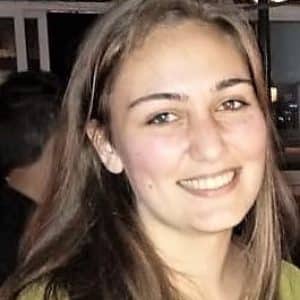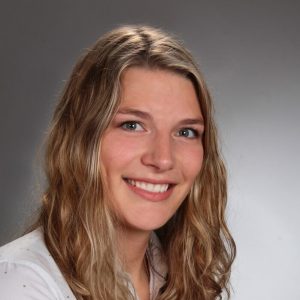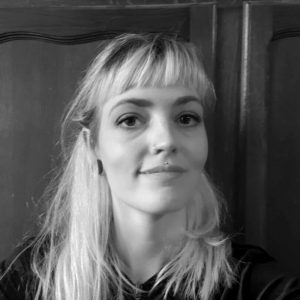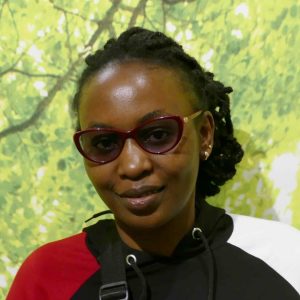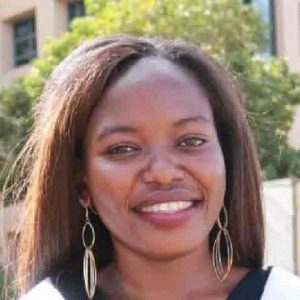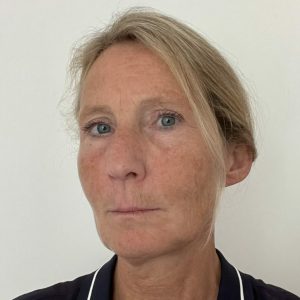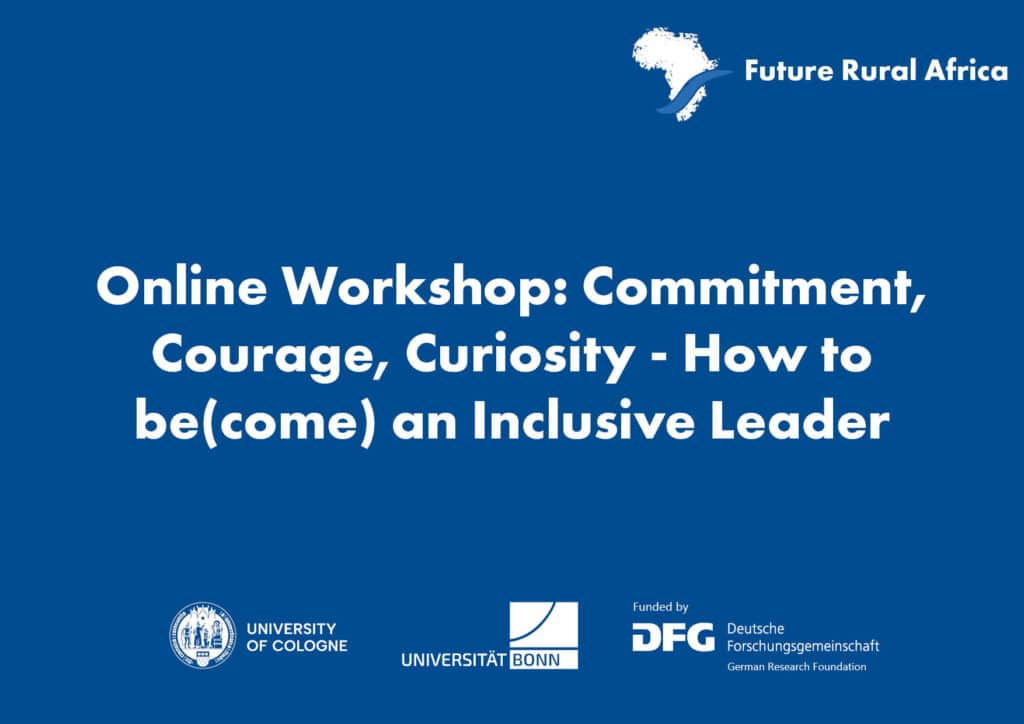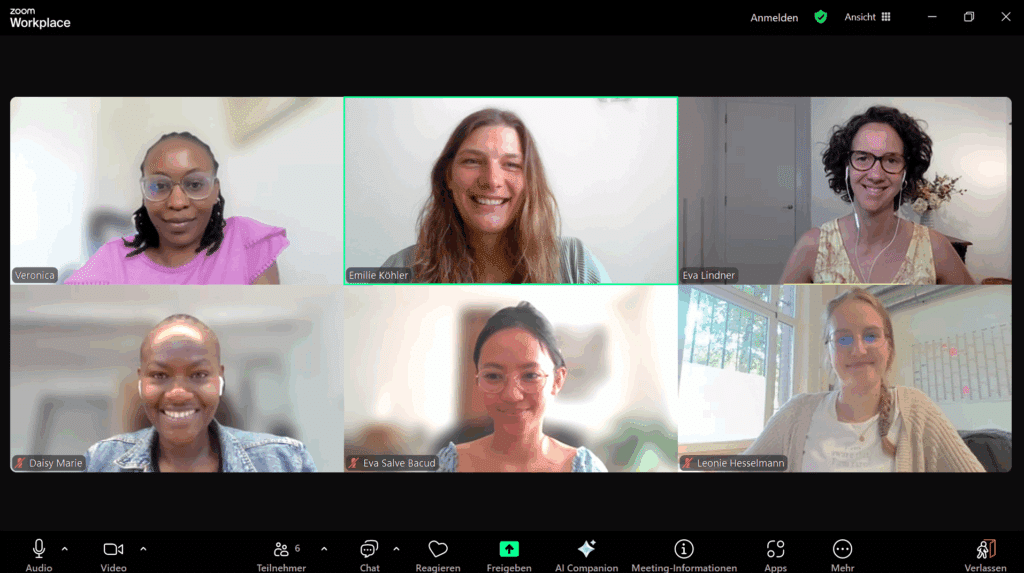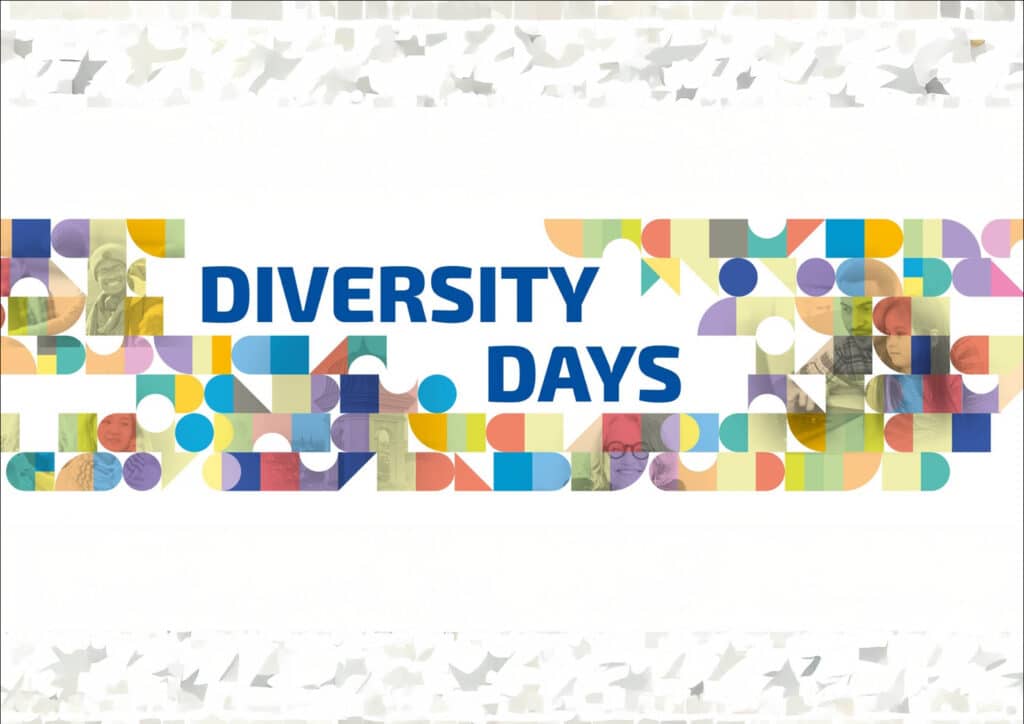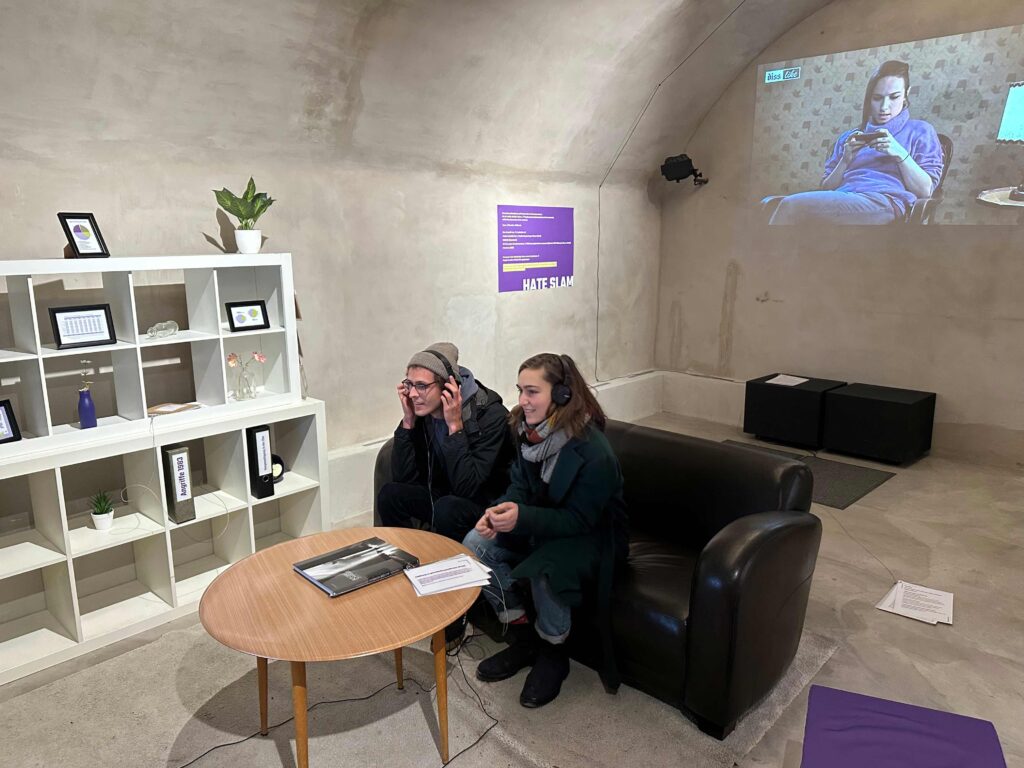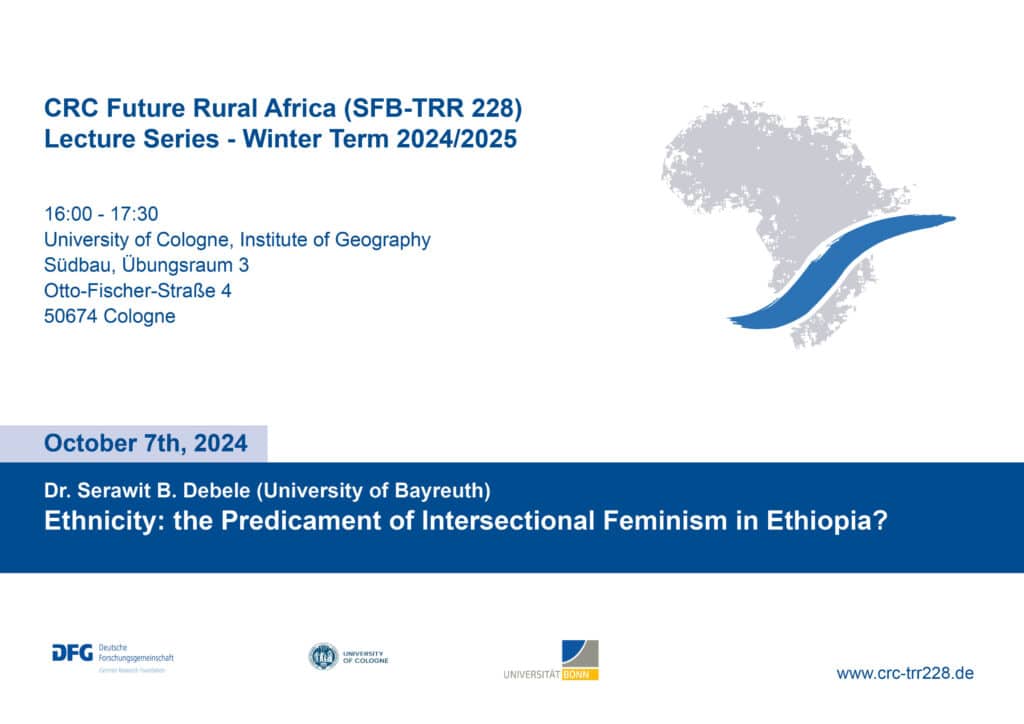CRC TRR 228 Future Rural Africa
Board for Gender Equality and Diversity
Gender equality and diversity are crucial aspects for our research centre as they foster a culture of inclusivity and bring diverse perspectives, experiences, and ideas to the forefront, ultimately enhancing the quality and impact of research outcomes.
Gender Equality and Diversity
The implementation of diversity policies and gender mainstreaming are essential structural aims of the CRC-TRR 228 “Future Rural Africa” and the German Research Foundation. Consequently, the goals of the CRC-TRR 228 equal opportunity work are to foster an open, welcoming work environment, to raise the proportion of women* in leadership positions, to make a scientific career compatible with family commitments, and to promote diversity, increasing the variety of perspectives and academic excellence.
We want to give everybody equal opportunities with regard to their qualifications, regardless of their gender, race, culture, or social background, for example. We want to eliminate existing structural disadvantages for women* within all university status groups, and to improve the conditions for balancing science, career, studies and family. Furthermore, we want to promote a diversity-friendly and non-discriminatory research environment in which individual, social, and cultural diversity is appreciated as one of our greatest assets and which allows all our members to pursue their scientific and personal goals. To that end, we raise awareness of intersectional forms of inequality especially with regard to gender equality, family friendliness, interculturality, accessibility, and educational equality.
We build our equal opportunity work on three core modules: (1) Female career, (2) Family Support, and (3) Awareness.
Female Career
One part of our gender equality work focusses on promoting the career progression of female scientists of the CRC Future Rural Africa, not only by advancing their professional competencies, but also by strengthening confidence and supporting them in expanding their networks. Therefore, we initiate diverse seminars such as empowerment workshops, individual coaching, and trainings addressing topics such as research presentation, communication, resilience, or imposter experiences. Additionally, we provide financial support for outstanding female researchers. In 2021, we introduced the “Future Rural Africa Female Researcher's Grant”. The aim of the grant is to support female researchers from the Global South at an early stage of their career to expand their network and to develop further expertise. At the same time, the CRC can increase its visibility and establish new cooperations in the Global South through the grant.
Female researchers of the CRC can apply for scientific mentoring or personal coaching using the linked forms. All applications are dealt with confidentially and decisions are made on an individual basis.
Both Universities of Bonn and Cologne implement further gender equality schemes, including training and workshop programs. For further information, please visit the website of the Female Career Programme (University of Cologne) and the website of the Maria von Linden Training Program (University of Bonn).
Moreover, both the University of Cologne and Bonn offer mentoring programmes. The University of Cologne offers the Cornelia Harte Mentoring, mentoring with the Gender Mentoring Agency and the IFS mentoring programme for international female scholars (for the three programs the application deadline is in autumn). At the University of Bonn, the MeTra-Programme is open for female PhD-candidates, PostDocs and scientists on their way to a professorship. Participants of the respective mentoring programs can apply for funding from the Board for Gender Equality and Diversity to cover costs such as travel costs that arise as part of the mentoring program.
Awareness
Another important part of our work focusses on raising awareness of the significance of diversity, gender equality, and inclusion, fostering an inclusive culture that appreciates differences in a respectful and empathetic way. This includes sensitisation work concerning gender roles, gender diversity, intersectionality, or cultural diversity as well as structural inequalities, sexual harassment and discrimination. Therefore, we don’t only address the dimension of gender but focus on a more intersectional approach by exploring the relation between gender and other dimensions, such as race, ethnic identity, and age, and how the interplay is shaping existing hierarchies and power asymmetries. In the context of scientific North-South partnerships like the CRC, it is particularly important to reflect on power asymmetries within international research cooperation.
In addition to supporting marginalized groups, we also want to encourage more privileged members of the CRC to reflect on power asymmetries, to recognize unconscious biases and to acquire diversity competence.
The CRC is committed to creating and maintaining a work, learning, and research environment where all members and guests feel safe, respected, and heard. Thus, we do not tolerate any form of discrimination, verbal or physical harassment, or abuse of power. If you or another CRC member is experiencing discrimination or harassment, you can contact any member of the CRC Board for Gender Equality and Diversity.
If you have suggestions for a measure to raise awareness, please contact the Board for Gender Equality and Diversity: crc228-genderboard@uni-koeln.de.
Family Support
The third pillar of our equality work focusses on increasing the compatibility of work and family. This includes financial support for elder care and necessary childcare during events and business trips as well as the coordination of daycare for children.
If there is need for daycare in addition to regular daycare facilities, CRC-members can apply each year for up to 60 hours in the Back-up-Service (emergency care). The Back-up-Service provides high quality one-to-one care. From the 60 fundable hours, per week up to 15 hours can be used per child. Please note that food must be paid extra. If you are interested in using this service, please send an e-mail to the Board for Gender Equality and Diversity: crc228-genderboard@uni-koeln.de.
To ensure childcare during fieldwork or business trips, travel costs for children and accompanying persons can be subsidised up to 600 Euros. For an application, please consult with the Board for Gender Equality and Diversity. For more information and the application form see the website of the Dual Career & Family Support of the University of Cologne.
Please note that there is a limit of 600 Euros per CRC-member per year for childcare related expenses (such as childcare during events and business trips, the Back-Up-Service and travel cost subsidies for children and accompanying persons). This limit cannot be exceeded, even if several offers are used.
The Board for Gender Equality and Diversity funded two “kid’s boxes” for the CRC, which are mobile parent-child rooms for the workplace.
Furthermore, members of the CRC who have special care responsibilities can apply for a student assistant to assist with their academic tasks using this form.
Exemplary Services Provided by Participating Universities
Dual Career & Family Support (University of Cologne)
The Dual Career and Family Support (CFS) is the central point at the University of Cologne for information, counselling and services concerning the compatibility of family and career. The services include personal advice, child- and eldercare support, care funds as well as the education program “Fokus Vereinbarkeit”.
Office of Family Services (University of Bonn)
The Office of Family Services is a central body at the University of Bonn for the improvement of the compatibility of family and career. Together with the Gender Equality Office (University of Bonn), it offers several services, such as counselling, the coordination of childcare and financial support.
Educational equity and participation
Both the University of Bonn and Cologne offer several programmes to strengthen educational equity, inclusion and participation. For example, the University of Cologne offers the First Generation Doctorate Mentoring programme and has installed qualification grants for junior researchers with disabilities. The University of Bonn has established the Pathways to Research programme for undergraduate and graduate students with a refugee or migration background.
For more information on university-wide equal opportunity programs, please visit the websites of the Universities of Bonn and Cologne. There you can find lists of counselling centres, measures and events in the fields of anti-discrimination, gender equality, anti-racism, critique of antisemitism, educational equity, family awareness, and inclusion.


